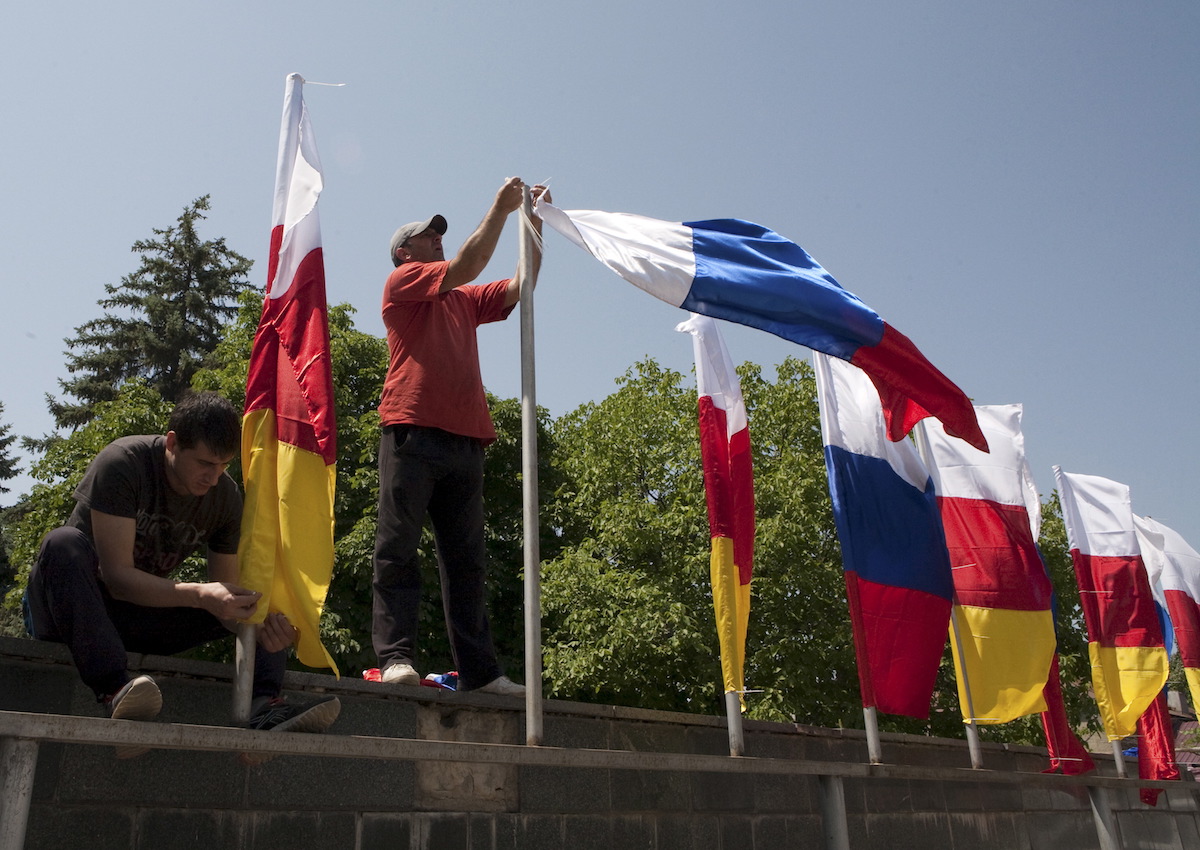Georgian PM under fire from NGOs after Kremlin appeal

Twelve influential Georgian NGOs believe that the policies of the Georgian authorities in relation to Russia are ‘not realistic’.
NGOs from the Coalition for Euro-Atlantic Georgia released a special statement in which they criticised the appeal of the Georgian PM Giorgi Kvirikashvili on 9 March made to Russian authorities. The NGOs believe that the PM’s statement was ‘difficult to understand’ and ‘was murky in content’, ‘which has given rise to a feeling of hopelessness and bewilderment in society’.
In his address, Kvirikashvili asked the Kremlin to undertake reasonable steps towards improving Georgian-Russian relations and to ‘enable the establishment of a direct dialogue with Sukhumi and Tskhinvali’.
[su_quote]“The statement of the PM of Georgia is not an adequate reflection of the situation and is more akin to a statement of a government that has no concrete plan for the resolution of problems in Georgian-Russian relations,” wrote the NGOs.[/su_quote]
The NGOs further wrote that the answer the PM received from Moscow was ‘cynical in content and simultaneously contained threats’.
Moscow’s answer to Kvirikashvili’s address
Kvirikashvili received a response from the Kremlin on 13 March. The response, issued by the Ministry of Foreign Affairs of Russia, says that the suggestion put forward by the PM to continue and deepen the bilateral process of normalisation could not do otherwise than ‘give rise to satisfaction’.
“Nobody should doubt that Russia, as in the past, is interested in restoring relations with neighbouring Georgia and is ready to go as far as Tbilisi is in this regard. The mention of a desire for progress at the Geneva Discussions inspires hope for a constructive approach from the Georgian side during the next round [of talks] at the end of March.
“We believe that such an approach would be supported by the other participants in the negotiations regardless of who heads the Georgian delegation in Geneva,” the statement reads. It further states that: “We cannot [refuse to] welcome the declared desire for direct dialogue with Abkhazia and South Ossetia.”
“This is the only real way to resolve the questions bothering Georgia which are beyond the scope of the bilateral Russian-Georgian agenda. This concerns, in particular, the recent and regrettable incident concerning Georgian citizen Archil Tatunashvili.”
[Ed. Regular talks between Special Representative for Matters of Relations with Russia Zurab Abashidze and the Deputy Minister of Foreign Affairs of Rusia Grigory Karasin are the only format of direct dialogue between Russia and Georgia.]
“Such a non-transparent format of dialogue without the participation of Georgia’s international partners may contain significant risks for Georgia’s interests,” the NGOs claim, and call upon the government to “…present society with concrete information on future relations with Russia and their view on the challenges that [future relations] will contain.”
Members of the Euro-Atlantic coalition call upon the ruling party and the parliamentary opposition to lay aside the differences between them as soon as possible. They also ask for a resolution to be passed which will act as an instrument to react appropriately to and introduce sanctions against people involved in crimes committed against Georgian citizens on the occupied territories.
The European Georgia party has already put forward such a resolution: it has suggested creating an Otkhozoria-Tatunashvili list which will act similarly to the Magnitsky List (Act) which will impose sanctions against individuals who are suspected of the kidnapping or murder of Georgian citizens in Abkhazia or South Ossetia which are occupied by Russia.
•The PM’s appeal to Moscow was preceded by the death of a Georgian citizen in Tskhinvali on 23 February: Archil Tatunashvili died under unclear circumstances while under arrest, and the de-facto South Ossetian authorities have yet to hand over his body to his family for burial. This further deepens Tbilisi’s suspicions that Tatunashvili did not die as a result of heart failure as is claimed by South Ossetia officials.




















